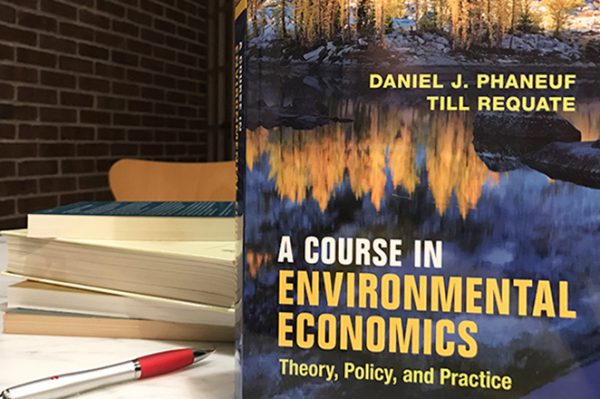
After more than ten years in the making, Dan Phaneuf and his co-author Till Requate have published A Course in Environmental Economics: Theory, Policy and Practice, the first graduate-level textbook that integrates the empirics, theory and policy of this maturing field. “In our teaching, we saw a clear need for a textbook covering contemporary topics inclusive of the entire field of environmental economics,” says Phaneuf.
Both Phaneuf and Requate have gained broad perspectives on current research around the world through their years as editors of two major academic journals. Phaneuf received special honors as the founding editor of the Journal of the Association of Environmental and Resource Economists at the recent meeting of the American Economic Association in Chicago. Requate edits the Journal of Environmental Economics and Management.
“With Phaneuf and Requate’s new text, environmental economics has its foundational text! The authors have succeeded in defining how the field will be perceived by all economists and perhaps more importantly how the next generation of environmental economists can advance it,” writes V. Kerry Smith, emeritus professor at Arizona State University.
Both authors have vetted the chapters in their graduate teaching as the book was being written. “Students have appreciated the way we integrate policy examples, datasets and core results using a common notation to connect the various topics,” says Phaneuf. “It’s written for the Ph.D. level but individual topics can also be used for master’s teaching.” A website for the book will house data and updates for further reading to keep the content on the cutting edge.
The authors of the 765-page book aimed for enough breadth to represent “a dynamic and growing field,” as well as the depth needed to challenge doctoral students who will shape the future of the field. “These two objectives largely explain the book’s length and the time it has taken to write,” they explain.
“We are really proud to see this first-of-its-kind textbook coming out after years of work by Dan Phaneuf and his collaborator,” said Ian Coxhead. “It will influence the field in important ways for countless students.”
See an interview with Dan Phaneuf and learn more about the book